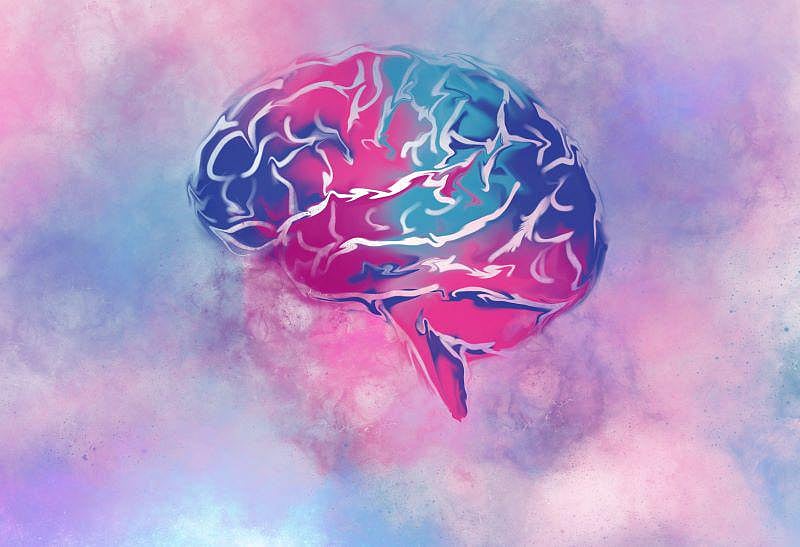Patient Resources
Get Healthy!
In the Cards: Simple Test Could Assess Risk of Dementia
- April 20, 2023
- Alan Mozes
- HealthDay Reporter

Is there a simple way to screen older folks for dementia risk years before there are any signs of memory loss or thinking impairment?
Yes, researchers report.
It's a test called SOMI, short for Stages of Objective Memory Impairment.
The process is straightforward. After being shown a series of images, patients who have no symptoms of dementia are asked to recall what they've seen, sometimes -- if needed -- with the help of clues.
After grading memory skills, participants are then ranked according to five stages of risk. Stage 0 represents no current memory issues, and low future dementia risk. Stage 4 represents the least reliable memory, and the highest degree of future dementia risk.
The new study indicates that those classified as either stage 3 or 4 appear to face a threefold greater risk for dementia than those classified as stage 0.
Study author Ellen Grober, a professor in the department of neurology with the Albert Einstein College of Medicine in New York City, said she is "reasonably confident in SOMI's ability to identify cognitively normal persons who are at high risk for clinical progression"to dementia.
And she explained that testing of this kind could be helpful in a couple of ways.
For one thing, said Grober, "healthy brain aging studies over the past 10 years provide things that can be done to mitigate risk"when dementia risk is identified earlier rather than later.
At the same time, she added, an accurate tool for predicting long-term dementia risk could serve as "an assist"to research efforts currently underway that seek to develop new treatments that might slow down or prevent mental impairment.
This latest investigation involved 969 men and women, ranging in age from 40 to 100, with an average age of 69. About 6 in 10 were women, while nearly 84% were white.
All underwent SOMI screening, which Grober said "is different from other memory tests because it starts with a study phase."
During this study phase, she noted, "people are shown four pictured items and asked to identify the item -- [such as grapes] -- that goes with a category cue [like] fruit. This type of study enhances the meaning of the item, making it easier to remember."
In turn, memory recall was then tested by asking participants to recall what they've seen. In situations where people had difficulty doing so, category clues were offered to trigger recall.
Memory skill was then classified from 0 to 4.
Just under half (47%) of the patients were deemed to be in stage 0, meaning free of memory issues. But about one-third (35%) were pegged as stage 1, while 13% were classified as stage 2. Roughly 5% were characterized as either stage 3 or 4.
Over the ensuing decade, 234 of the participants developed some degree of thinking impairment.
After taking into account a number of factors that can play a role in dementia risk -- including gender, age and genetic predisposition -- the investigators concluded that those who had been graded as either stage 1 or 2 faced twice the risk for dementia as those graded at stage 0, while those characterized as stage 3 or 4 faced triple the risk.
The study team said that, based on that calculation, about 7 in 10 of those in stage 3 or 4 -- and nearly 6 in 10 of those in stage 2 -- would ultimately struggle with thinking impairments down the road.
The study findings were published online April 19 in the journal Neurology.
Christopher Weber is director of global science initiatives with the Alzheimer's Association, one of the co-funders of the study.
Weber suggested that the SOMI approach differentiates itself from other tests "by its ability to detect subtle memory deficits that often accompany the very early stages of Alzheimer's disease."
He stressed that "early detection can help individuals and their health care providers take steps to manage symptoms, plan for the future, and potentially slow the progression of the cause of cognitive decline through drug and/or lifestyle interventions."
Still, Weber cautioned that the study focused primarily on white and well-educated individuals, making it hard to generalize the findings to a more diverse group of patients.
At the same time, he emphasized that "there is no single test that can definitely predict the onset of dementia."Getting an accurate diagnosis requires a "comprehensive evaluation,"Weber said, one that involves not only memory screenings but also neurological and imaging tests.
More information
There's more on dementia at the U.S. National Institute on Aging.
SOURCES: Ellen Grober, PhD, professor, department of neurology, Albert Einstein College of Medicine, New York City; Christopher Weber, PhD, director, global science initiatives, Alzheimer's Association, New York City; Neurology, April 19, 2023, online

